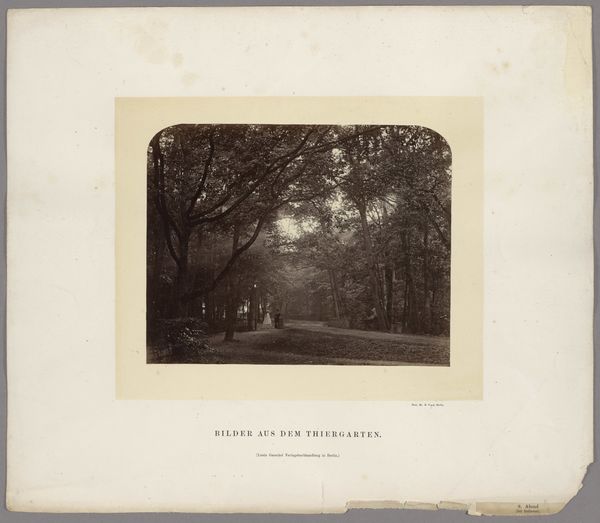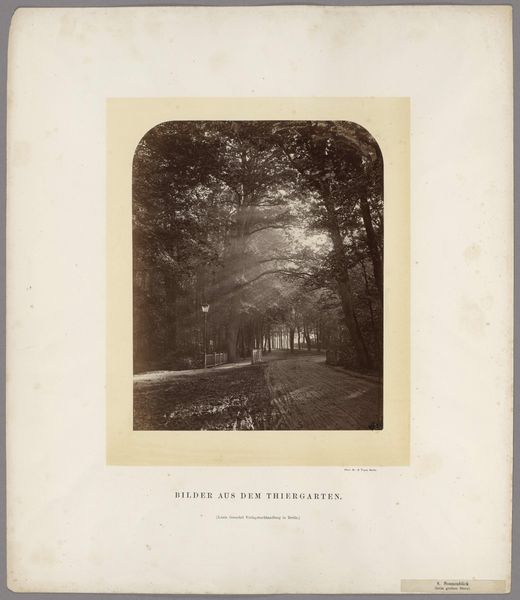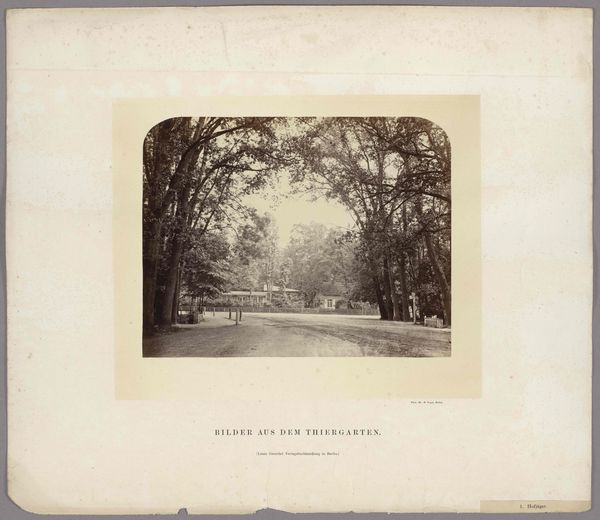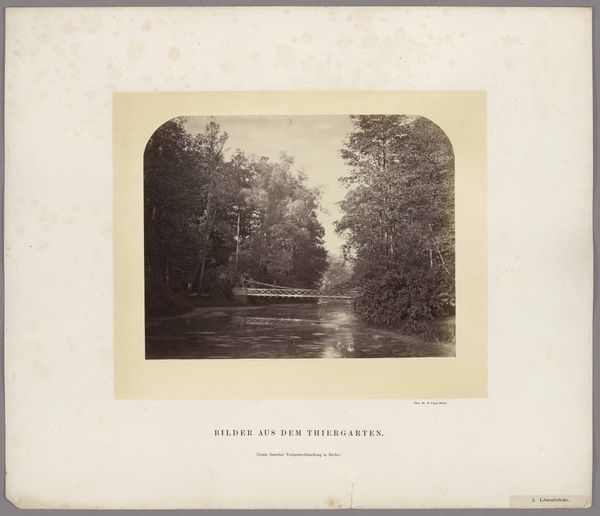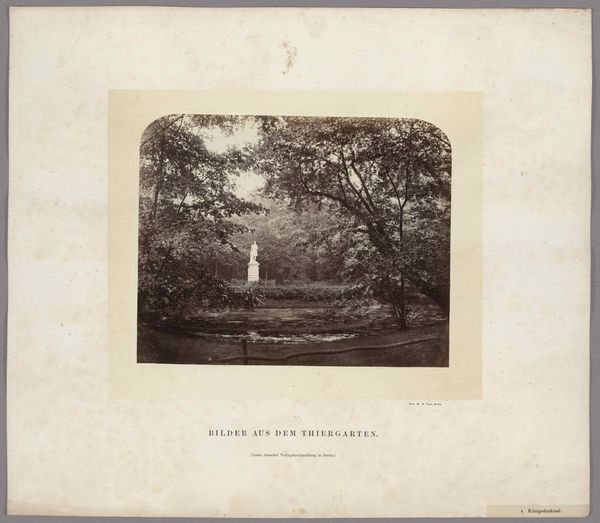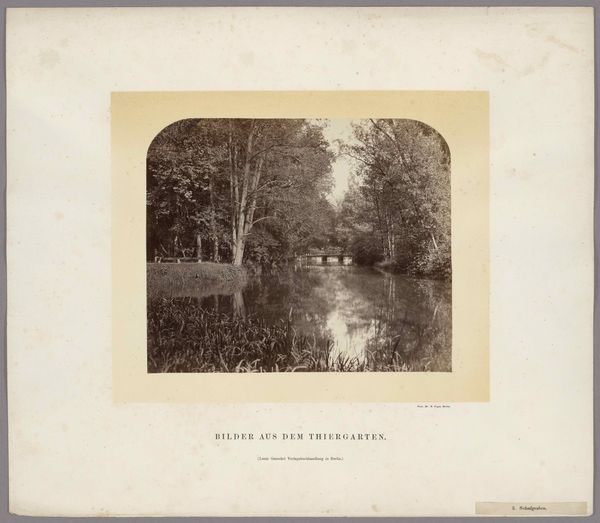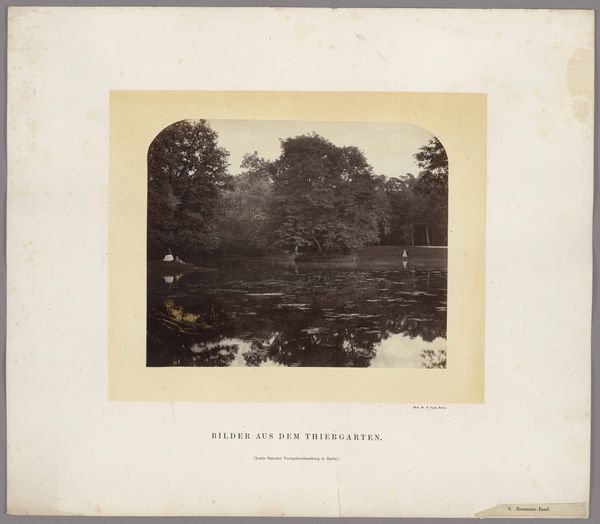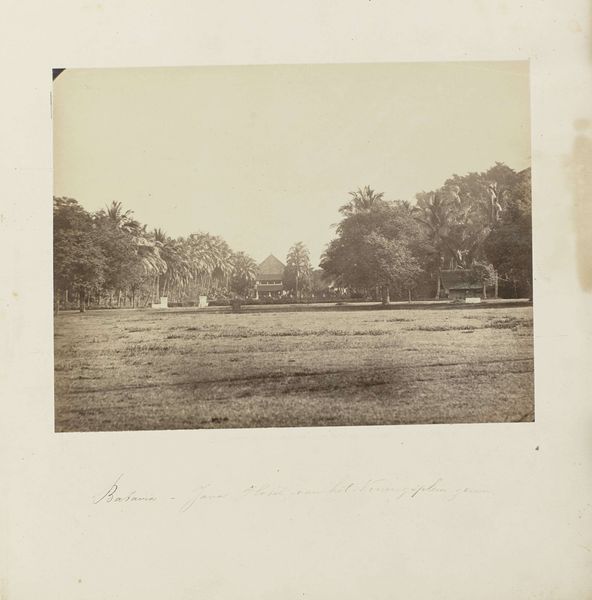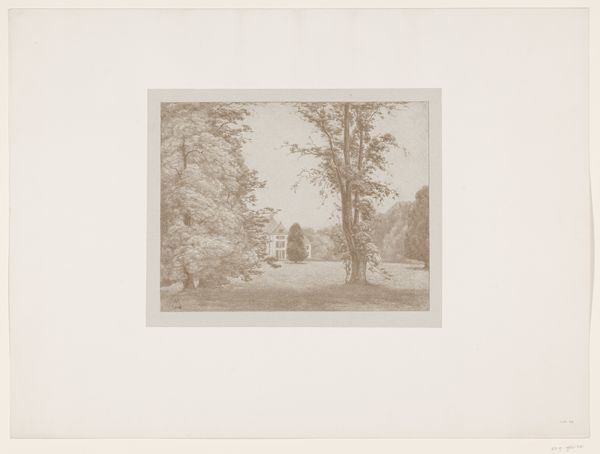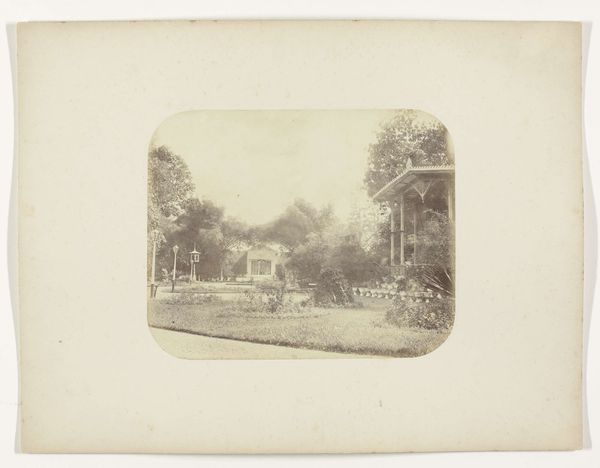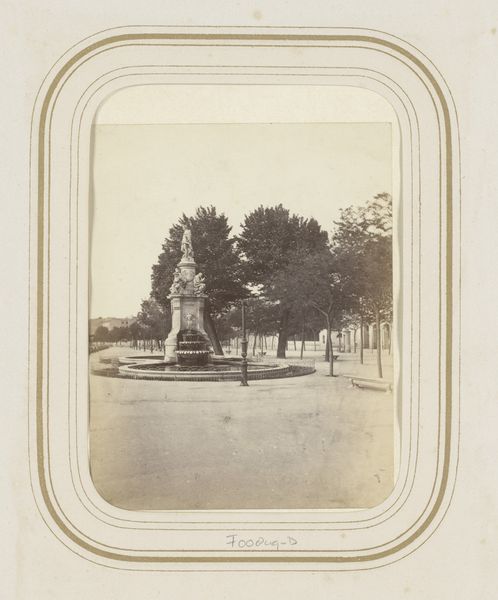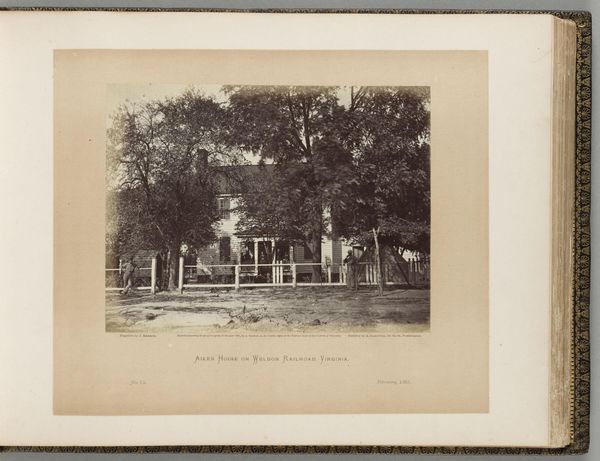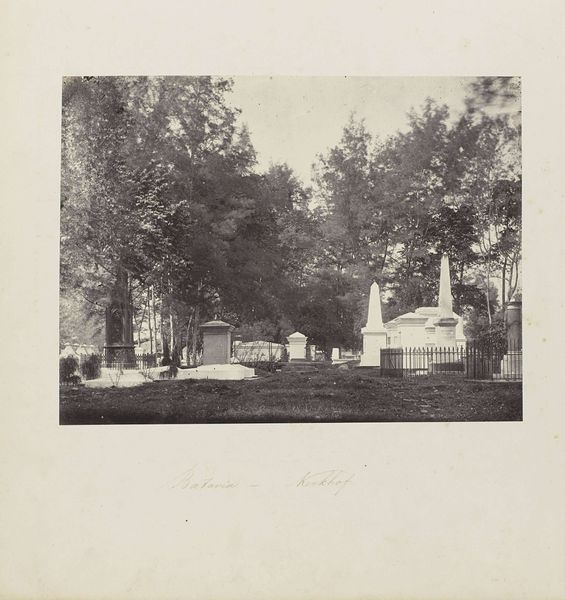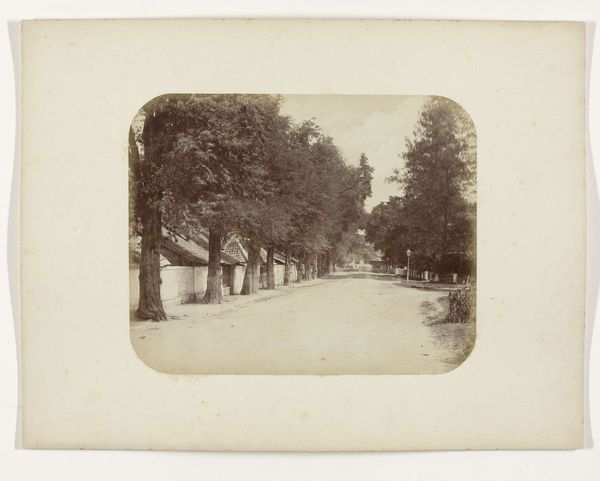
albumen-print, print, daguerreotype, paper, photography, gelatin-silver-print, albumen-print
#
albumen-print
#
16_19th-century
# print
#
landscape
#
daguerreotype
#
figuration
#
paper
#
photography
#
gelatin-silver-print
#
park
#
albumen-print
#
building
Copyright: Public Domain
Editor: So, here we have Hermann Wilhelm Vogel’s “Gartenhaus (bei Bellevue),” from 1866, an albumen print. The photo seems so carefully staged. What strikes you about this work? Curator: I immediately consider the albumen print itself, a 19th-century process transforming photographic negatives. How did the accessibility of photography impact labor amongst painters? Did new, mass-produced imagery shift perceptions, influencing landscape art’s development through different lenses and new techniques? Editor: That's a compelling idea, relating material production with broader changes. How do we place this artwork within the social context? Curator: Consider the burgeoning middle class. Did the increasing popularity of public parks, made accessible by photos, transform notions of leisure, prompting questions about private property versus shared social spaces? How does this democratization affect the business and consumption of art? Editor: It's intriguing to see the image now as more than just a pretty landscape. It makes me wonder if these landscapes for purchase encouraged certain class behaviors within leisure settings. Curator: Exactly. Analyzing the process challenges our conventional boundaries between artistic high culture and craft. Consider the labor involved, the materiality of the print, the context of its consumption. It challenges the dominance of paintings, even suggesting photography reframes our relationship with the external world. Editor: I hadn't thought about that, but it definitely prompts new inquiries about 19th-century art. Curator: Seeing art through a materialist lens creates engaging, different perspectives. There's always so much to consider, isn't there?
Comments
No comments
Be the first to comment and join the conversation on the ultimate creative platform.
